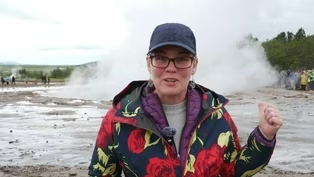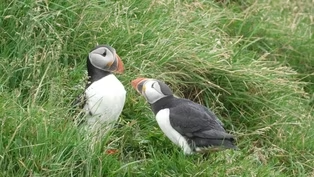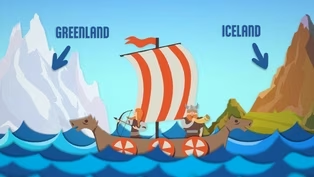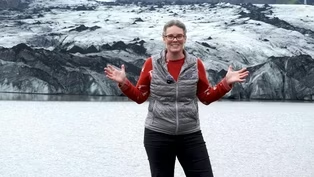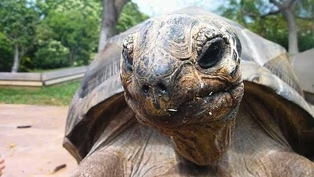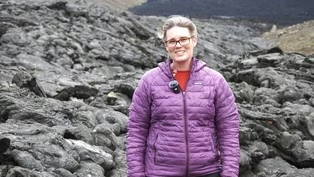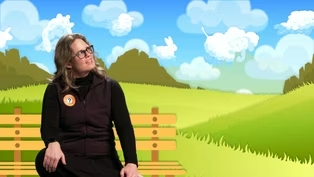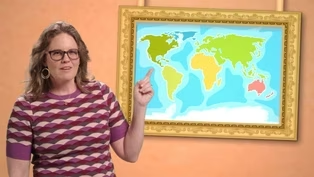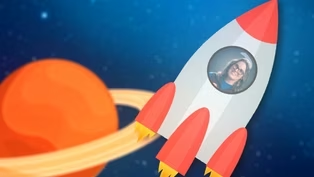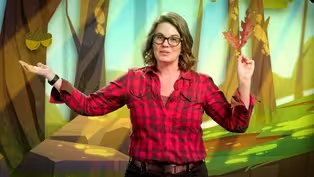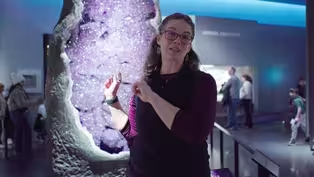But Why – A show for curious kids
What is snow made out of?
12/6/2024 | 1m 48sVideo has Closed Captions
What is snow made out of? Asks Hank from California.
Snow! It's sometimes icy and crunchy, wet and sticky, or puffy and light. It can dust the ground or cover it in HUGE piles! People sled on it, ski on it, snowboard... you get the idea. It falls from the sky, but how does it get up there, and what exactly is it?
Problems playing video? | Closed Captioning Feedback
Problems playing video? | Closed Captioning Feedback
But Why – A show for curious kids is a local public television program presented by Vermont Public
But Why – A show for curious kids
What is snow made out of?
12/6/2024 | 1m 48sVideo has Closed Captions
Snow! It's sometimes icy and crunchy, wet and sticky, or puffy and light. It can dust the ground or cover it in HUGE piles! People sled on it, ski on it, snowboard... you get the idea. It falls from the sky, but how does it get up there, and what exactly is it?
Problems playing video? | Closed Captioning Feedback
How to Watch But Why – A show for curious kids
But Why – A show for curious kids is available to stream on pbs.org and the free PBS App, available on iPhone, Apple TV, Android TV, Android smartphones, Amazon Fire TV, Amazon Fire Tablet, Roku, Samsung Smart TV, and Vizio.
Providing Support for PBS.org
Learn Moreabout PBS online sponsorshipMore from This Collection
Fun facts about the Earth and beyond!
Why is Iceland green and Greenland icy?
Video has Closed Captions
Why is Iceland green and Greenland icy? Asks a number of viewers. (2m 39s)
Video has Closed Captions
How are glaciers formed? Asks Eena from British Columbia. (2m 29s)
Are there animals or plants that can live forever?
Video has Closed Captions
Are there animals or plants that can live forever? Asks Eleanor from New York. (2m 25s)
Why does Iceland have so many volcanoes?
Video has Closed Captions
Why does Iceland have so many volcanoes? (1m 46s)
Video has Closed Captions
Why are continents so big? Asks Oscar from New Zealand. (2m 16s)
Can I run on the rings of planets?
Video has Closed Captions
Can I run on the rings of planets? Asks Iola from New York. (2m 13s)
Video has Closed Captions
How do seeds grow into trees? Asks Job from Conecticut (2m 13s)
Video has Closed Captions
How are geodes made? Asks Esther from Massachusetts. (1m 53s)
Video has Closed Captions
What is a Solar Eclipse? Asks Camila from Dobbs Ferry ,NY (1m 53s)
Providing Support for PBS.org
Learn Moreabout PBS online sponsorshipDo you like catching snowflakes on your tongue?
Before you try it you should know when you eat a snowflake, you're also eating dust.
What is snow made out of?
It starts with a tiny particle of dust or pollen or something else.
Small and solid, but light enough to float up in the atmosphere.
If it's cold enough and moist enough up there, water vapor can attach and freeze to the tiny particle, and ice crystals form.
These ice crystals bump into other crystals and it increases in size.
Eventually the particle is too heavy to stay up and it starts to fall to earth, bumping and growing as it goes all the way down to your tongue.
Or more likely the ground.
The exact type and shape of a snowflake depends on the weather and moisture conditions, and it's true that no two snowflakes are exactly alike because they all tak different paths to the ground.
Because snow is made out of water, it's translucent, meaning you can see through it, but not super clearly.
When the light reflects off the snow, it reflects all the colors to our eyes, making the snow appear white and sparkly.
Scientists call this snow sparkle.
Did you know that it can snow in tropical regions too?
Snow can form at high elevations where it's often much colder, which is how you can find snow on high mountains even near the equator.
No matter how snow forms, it sure is fun to play with.
To find out more about But Why and listen to our full episodes, go to butwhykids.org

- Science and Nature

Explore scientific discoveries on television's most acclaimed science documentary series.

- Science and Nature

Capturing the splendor of the natural world, from the African plains to the Antarctic ice.












Support for PBS provided by:
But Why – A show for curious kids is a local public television program presented by Vermont Public
